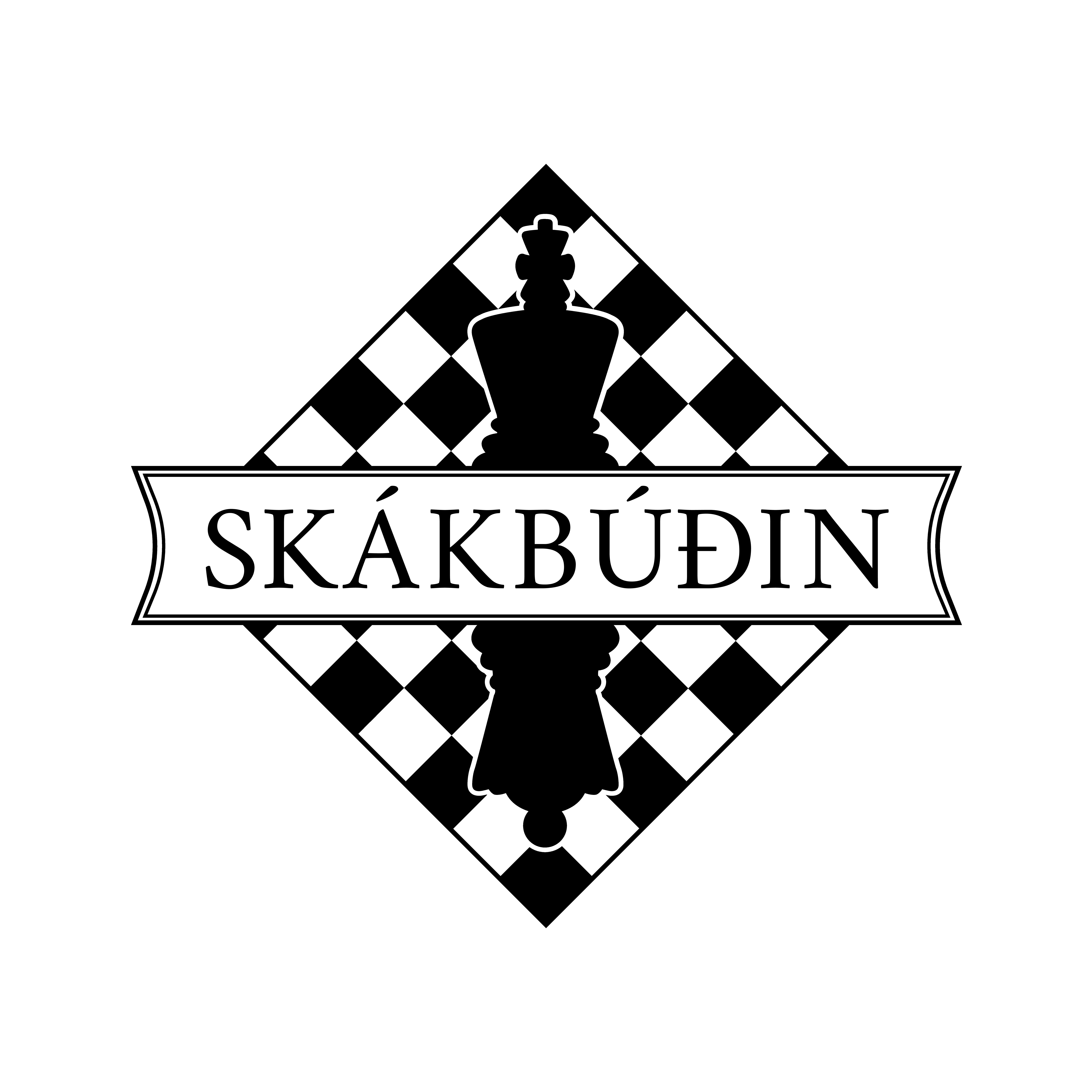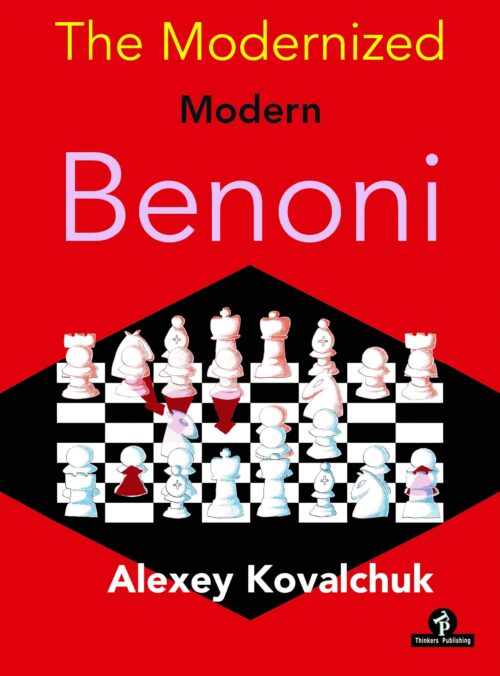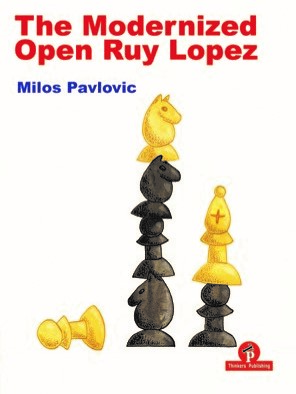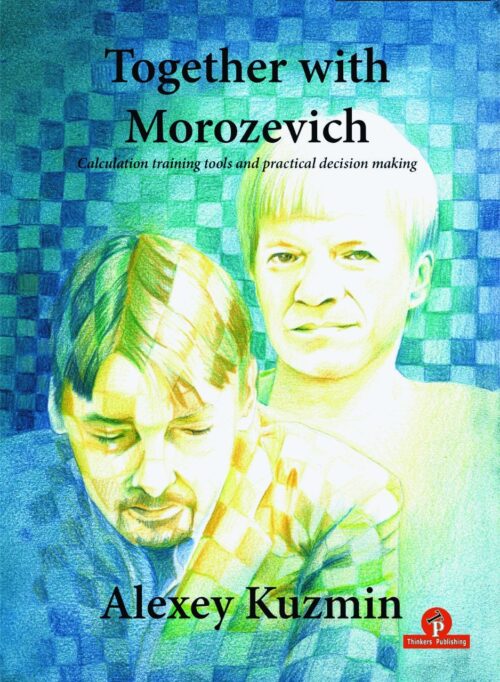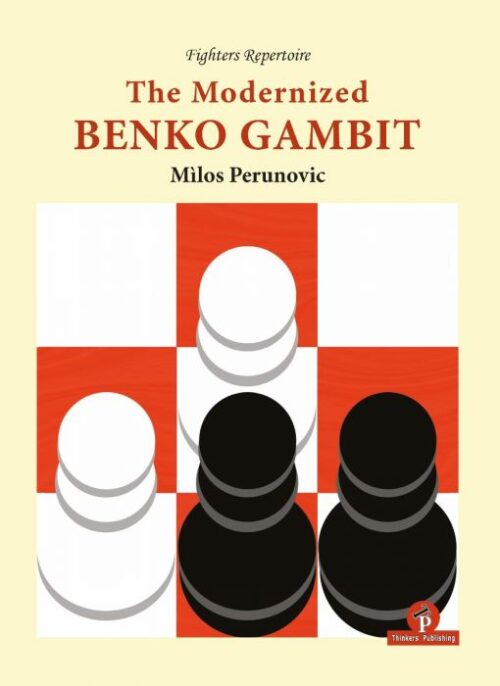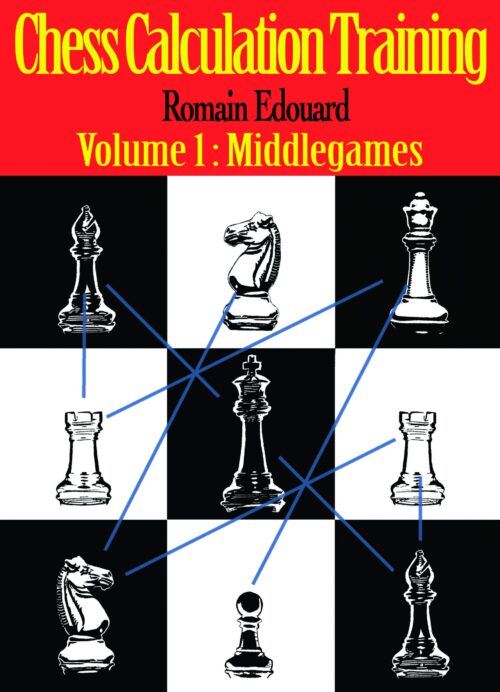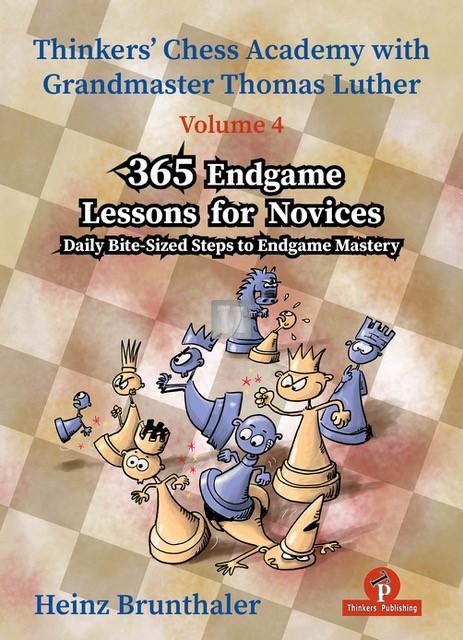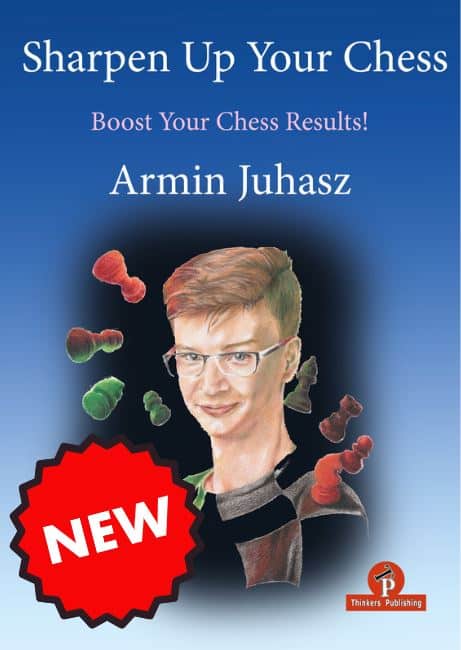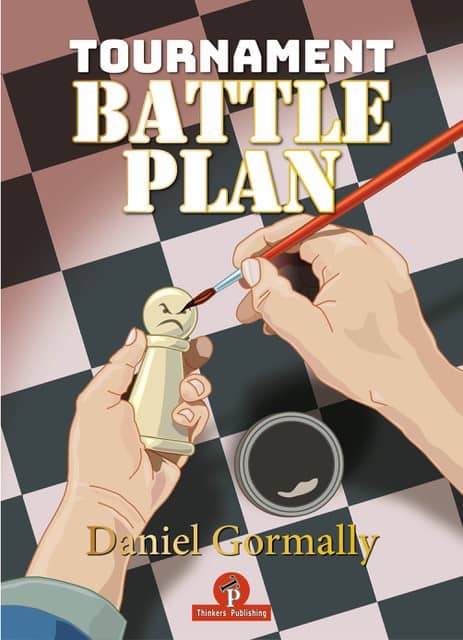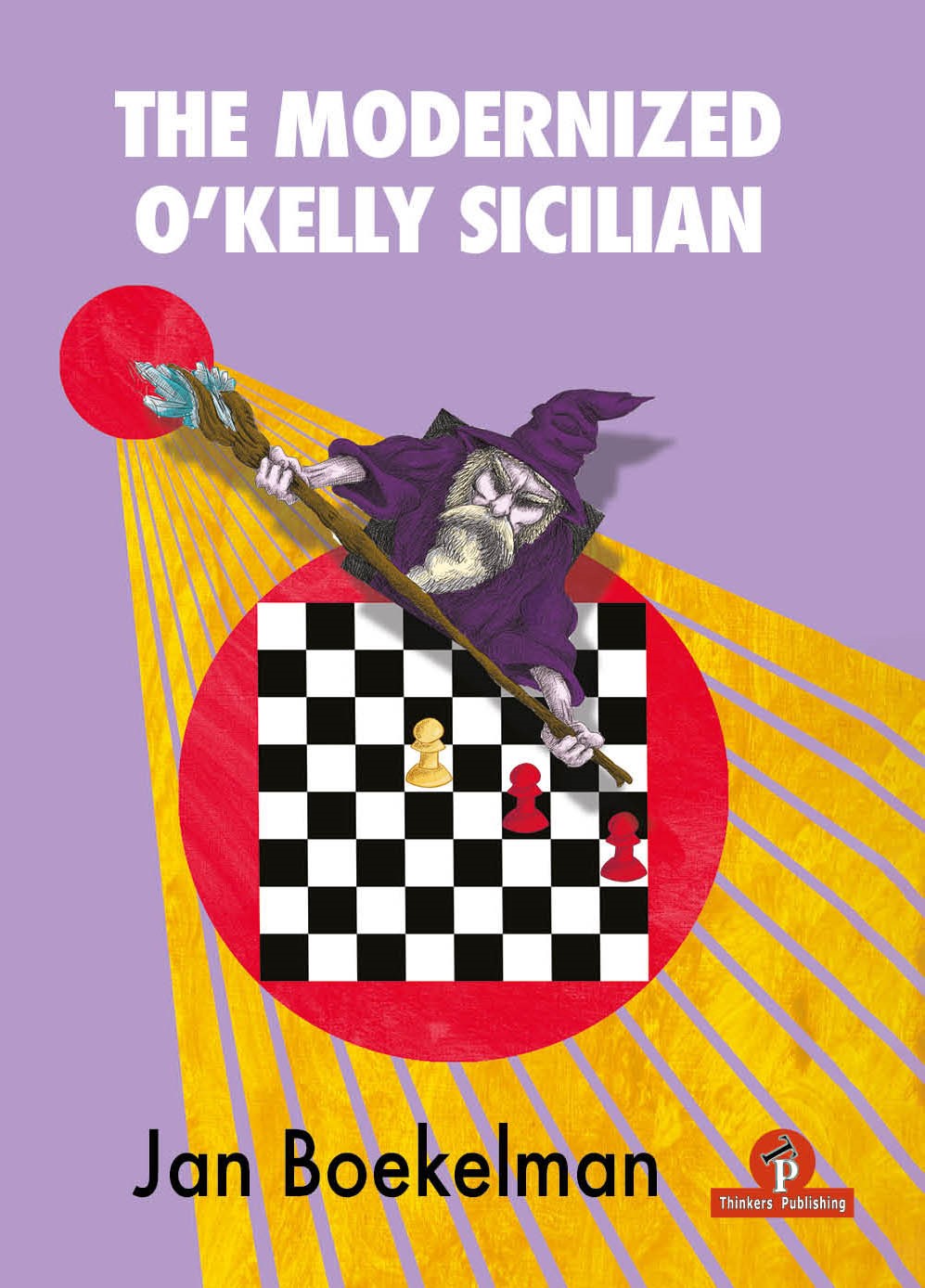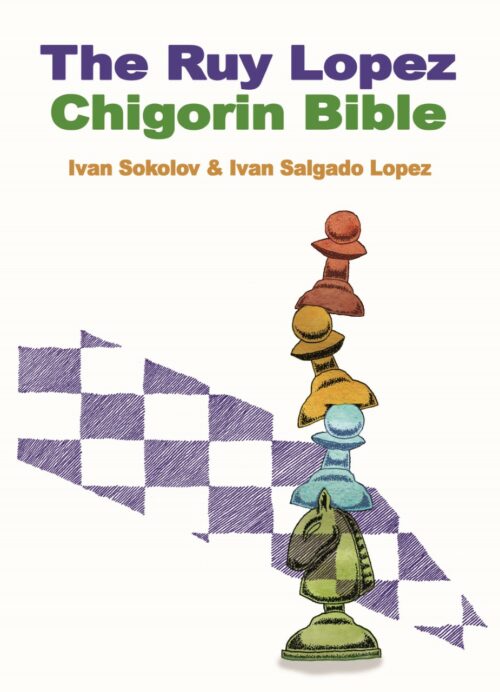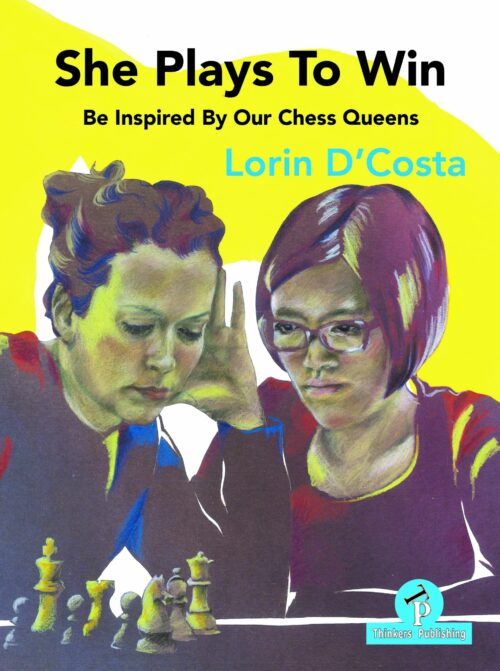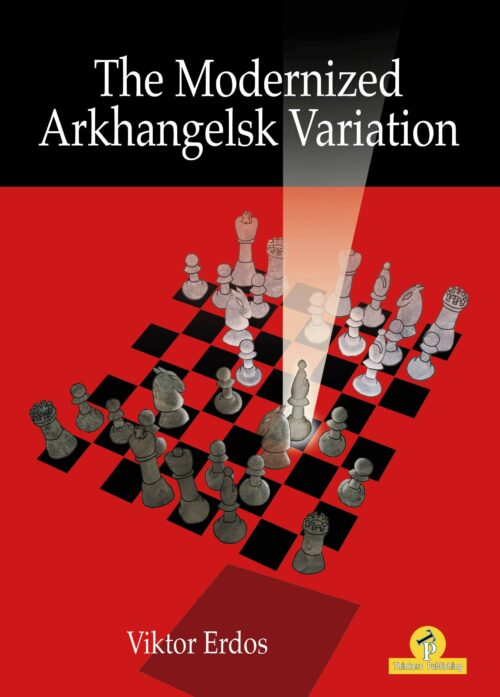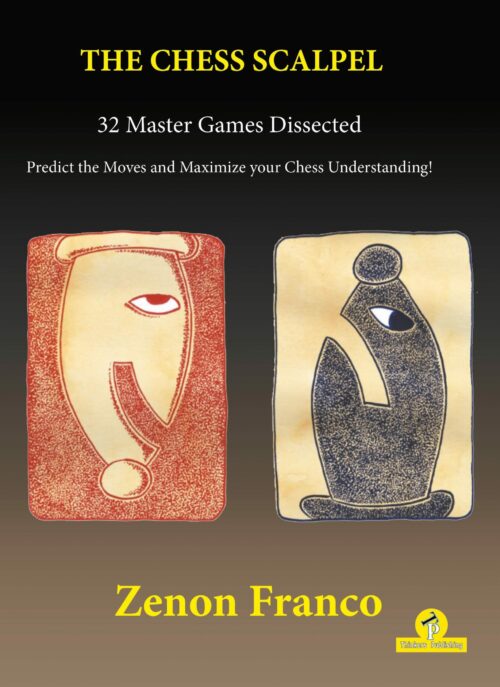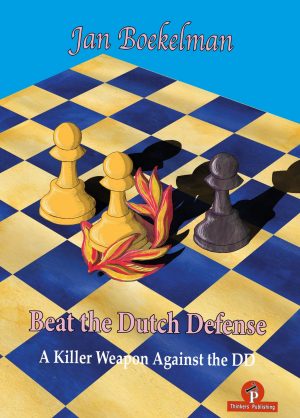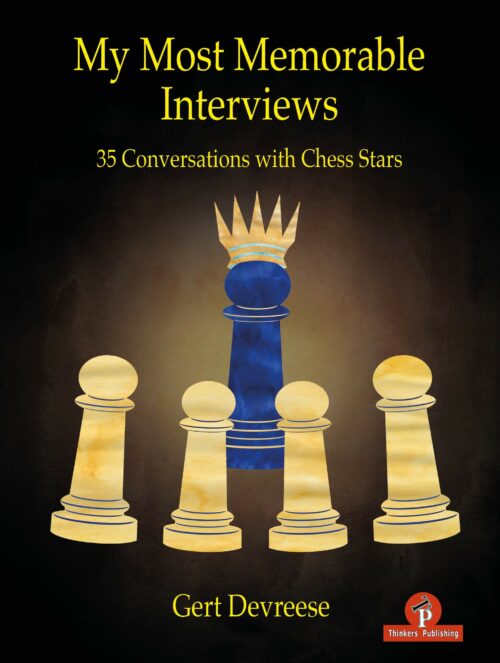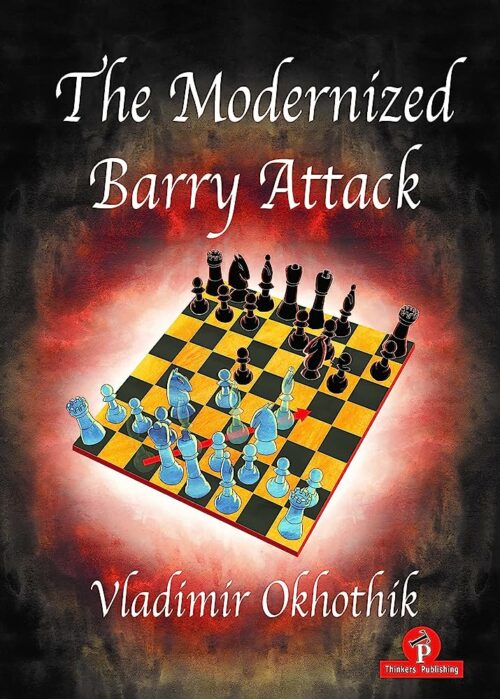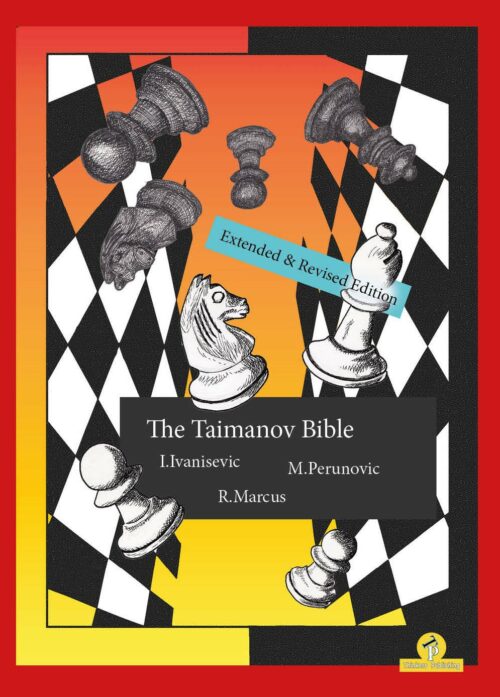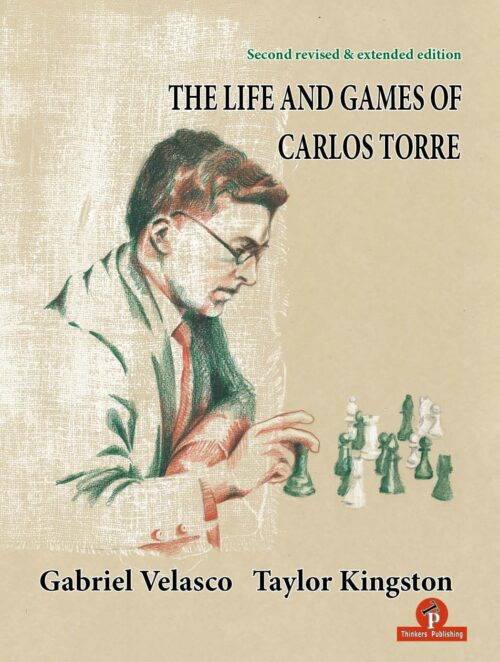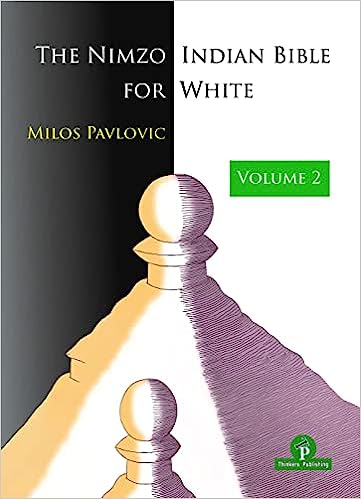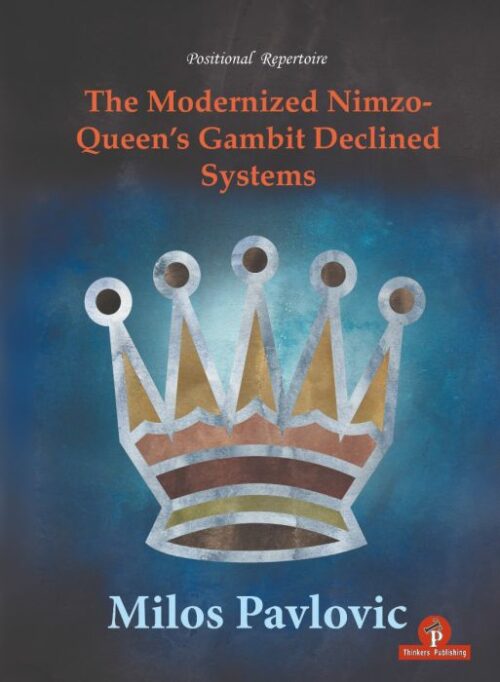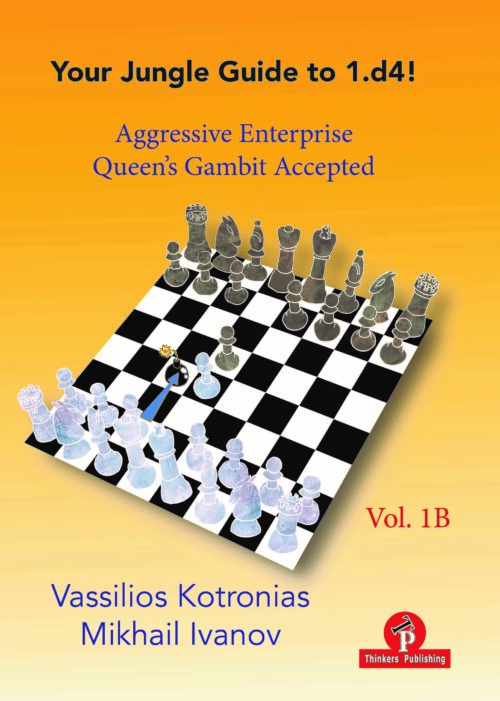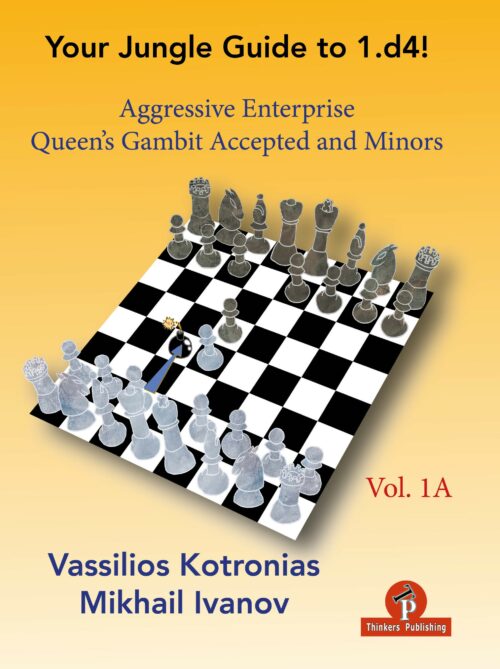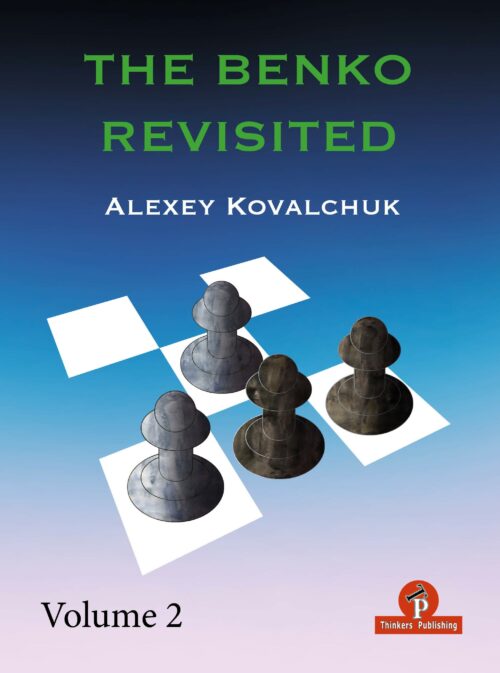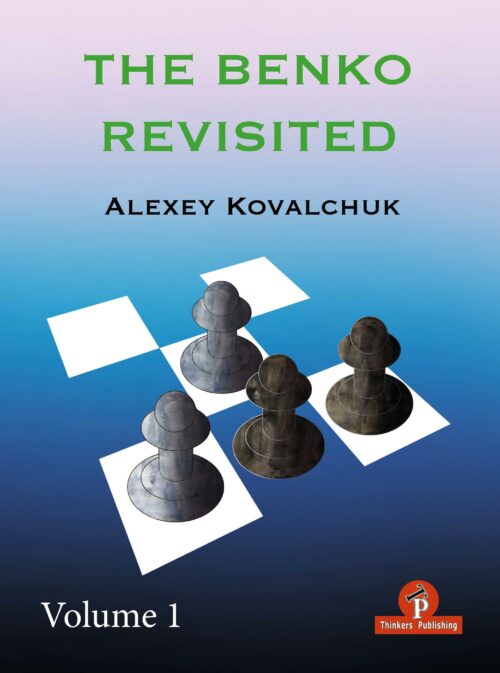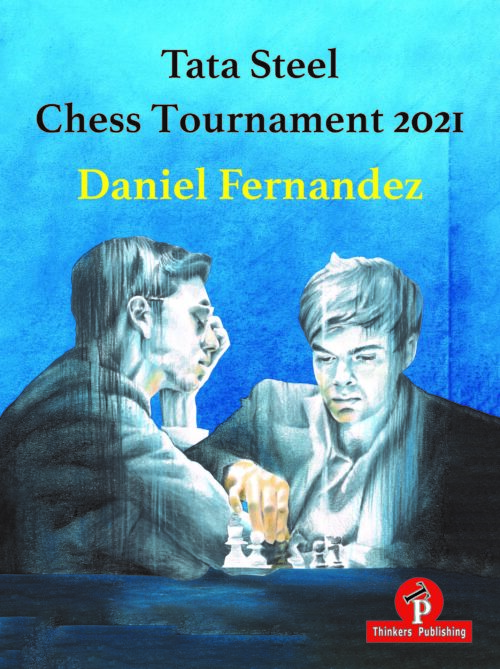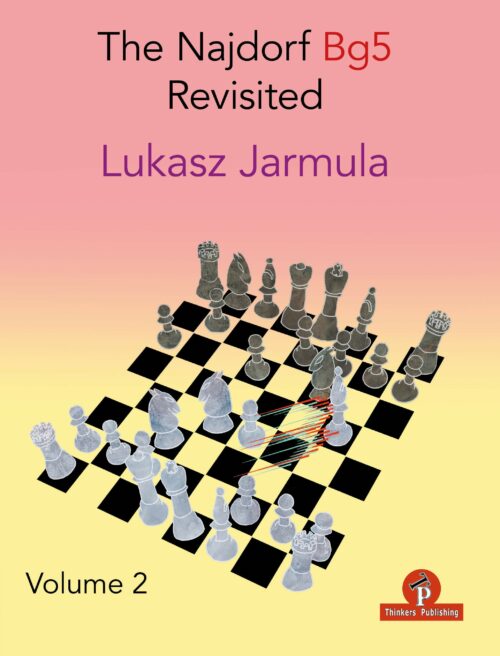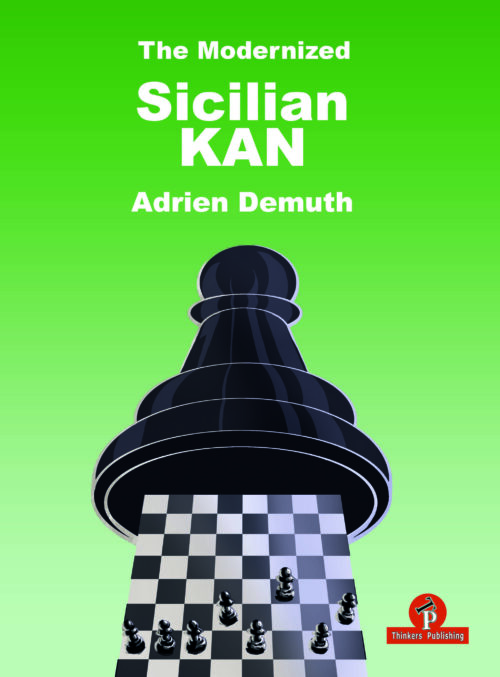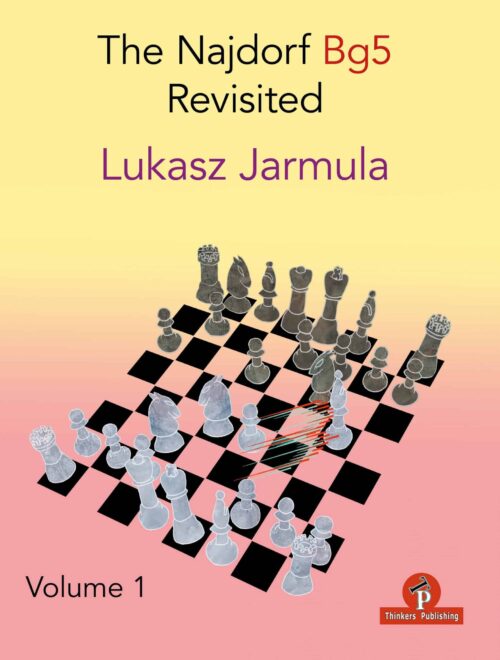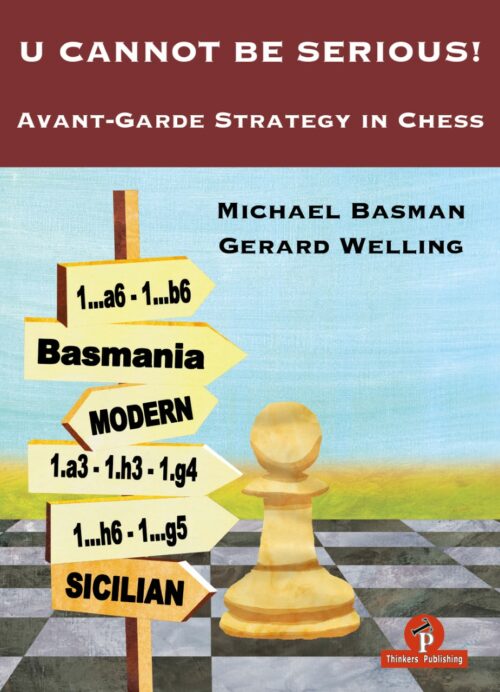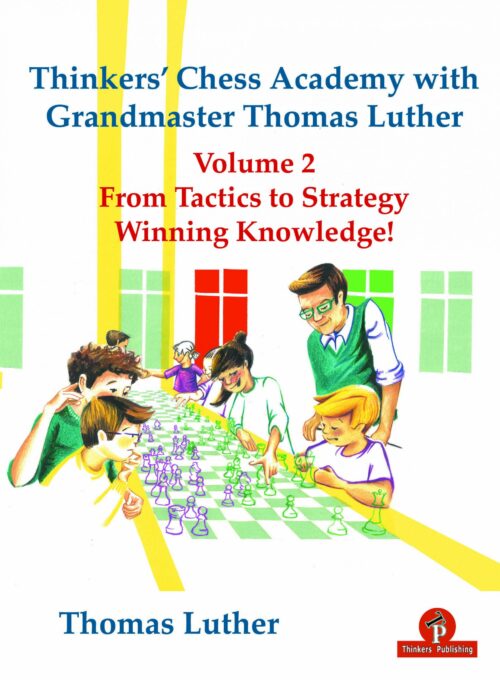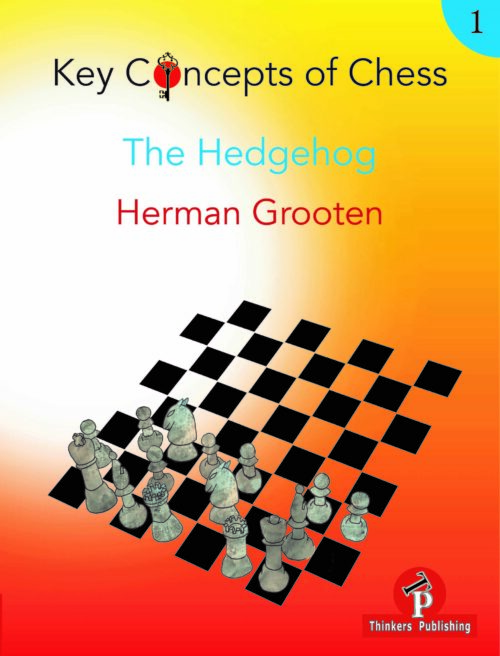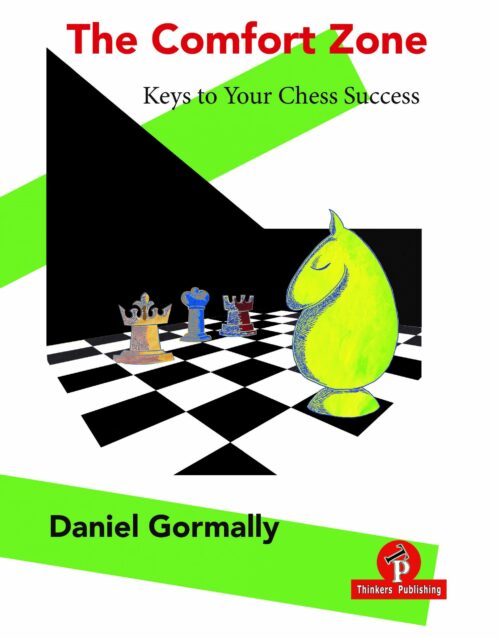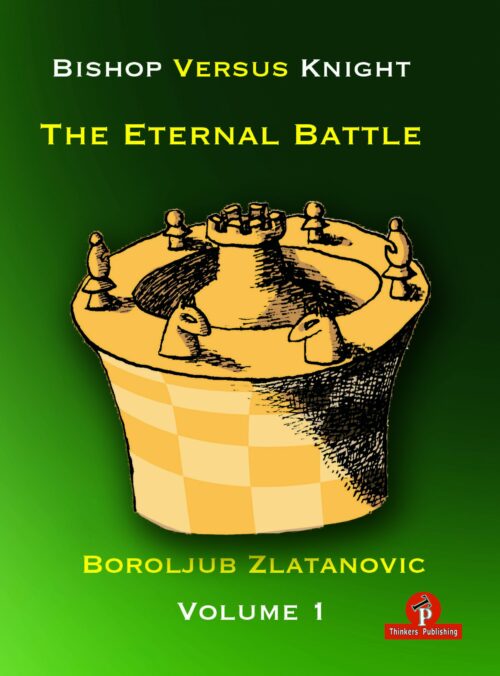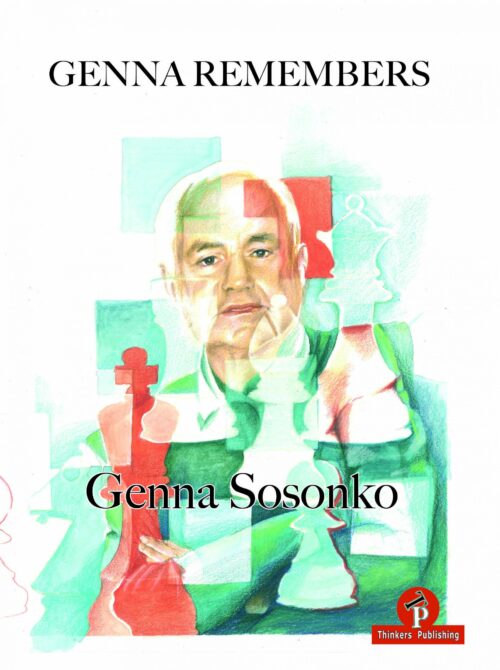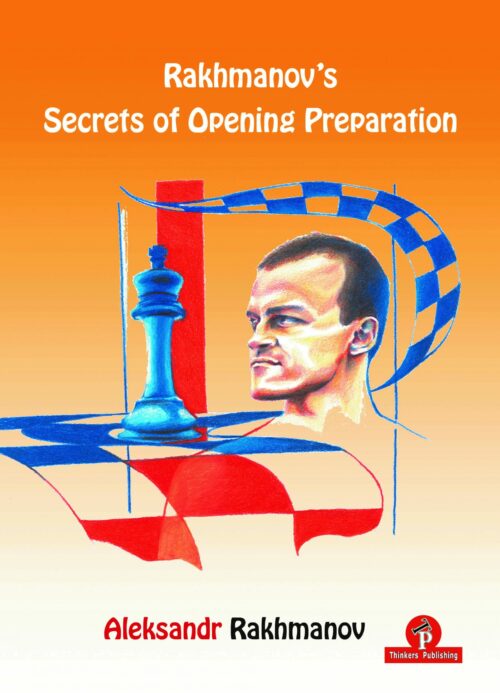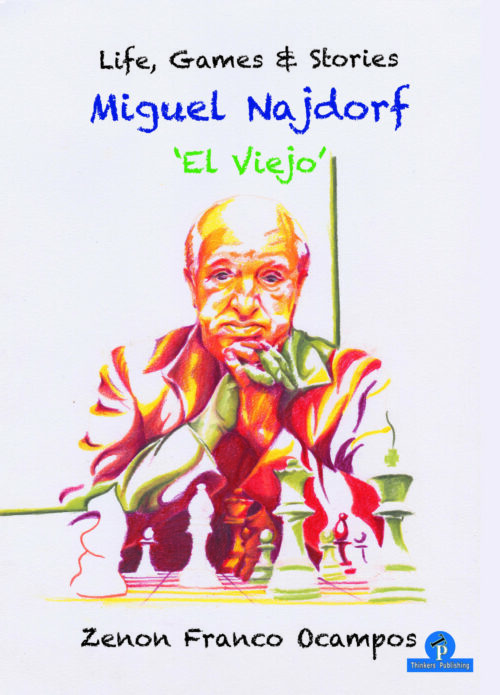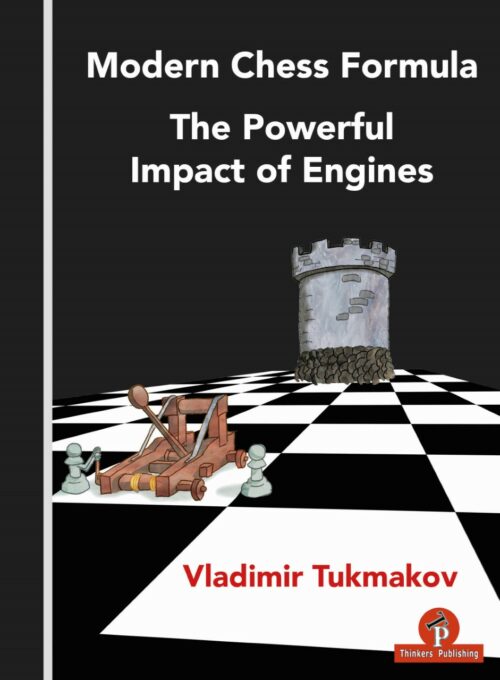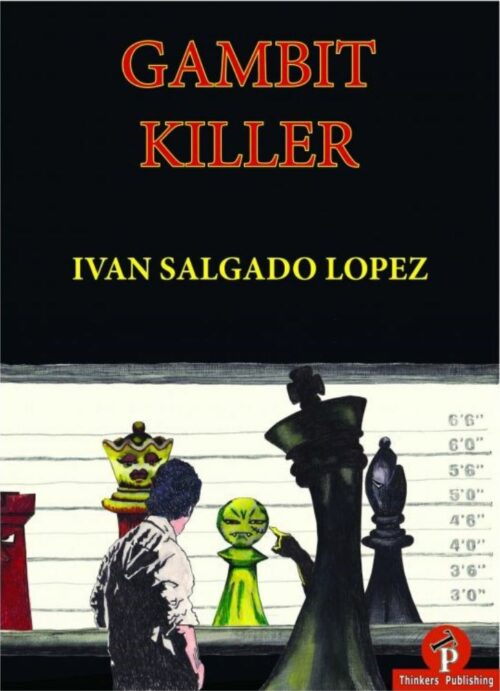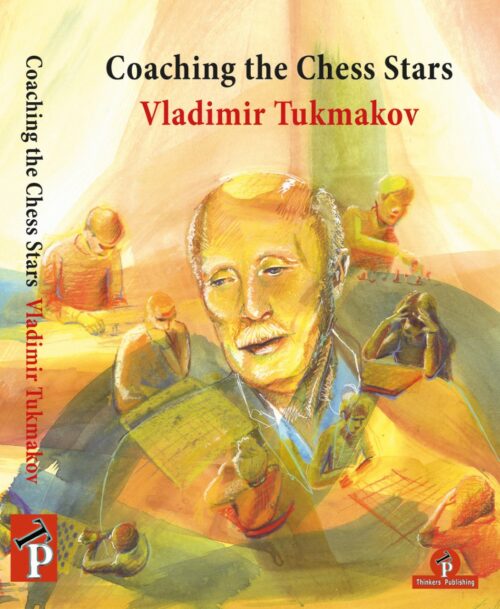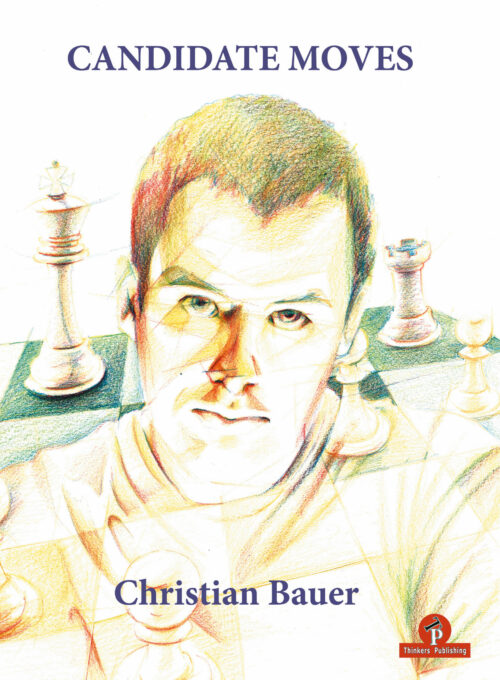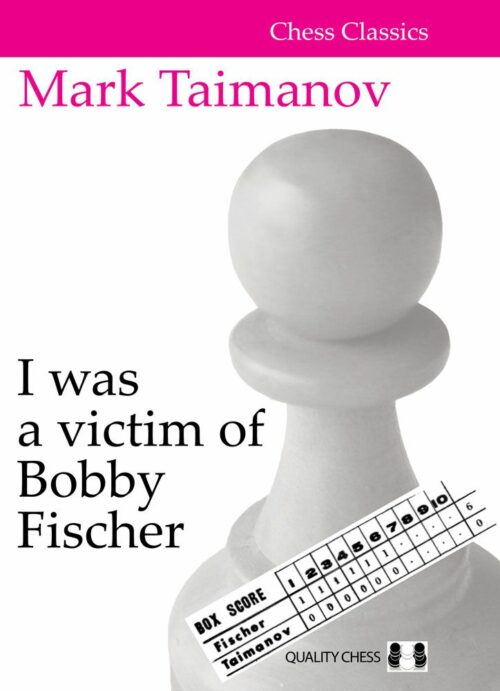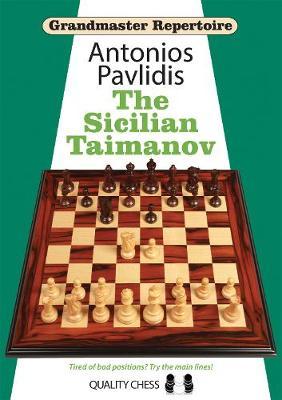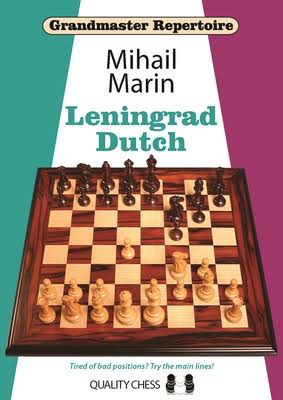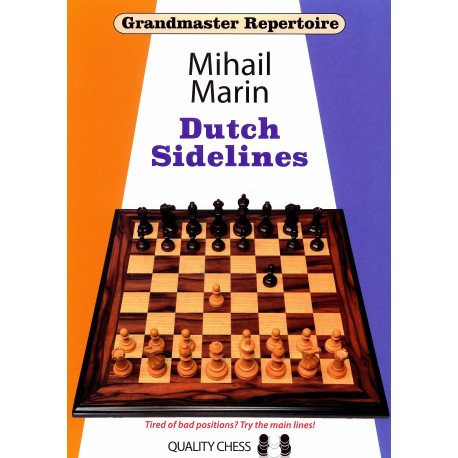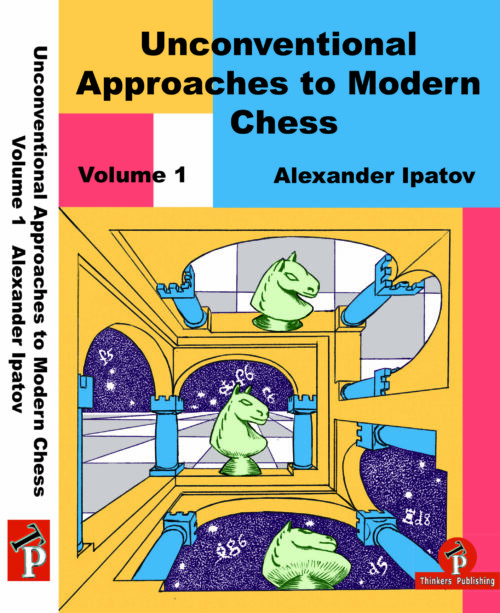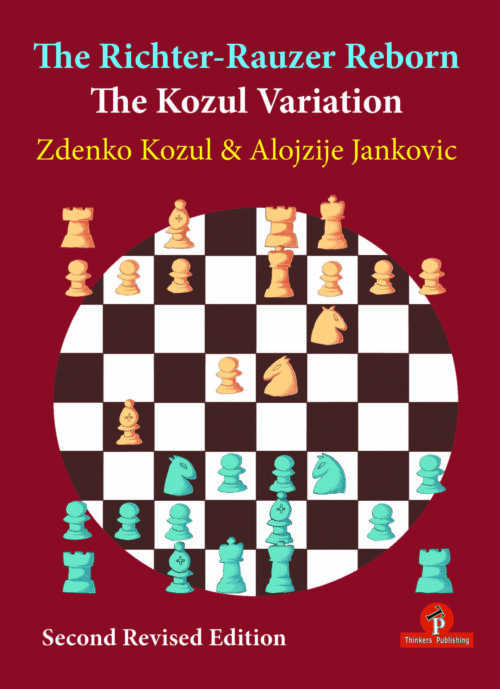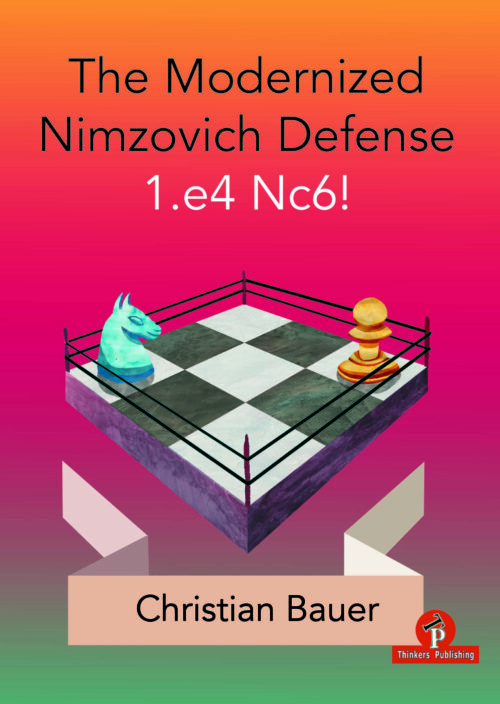-
Á útsölu!“Over time, my attention focused on the Modern Benoni. In this opening, the bishop on g7 is the same icon that is the basis of the King’s Indian, but here it can operate on the whole a1-h8 diagonal instead of being locked in by its own pawn on e5, as usually happens in the King’s Indian. Black’s plan is outrageously simple: with pawns on d6 and c5, and sometimes b4, he creates a breakwater that opens up space for his favorite on g7.” ~ Alexey Kovalchuk
-
Á útsölu!The positions arising from the Open Spanish contain ideas so different from the usual Ruy Lopez that I sometimes wonder whether it should really be considered part of it at all. It is an open game with unbalanced structures and sharp play but compared to the Sicilian, for instance, for which the previous description would also apply, there is an important difference; there is a certain degree of stability and solidity in the Open Spanish which distinguishes it from the sharper realms of the Sicilian and puts this line in its own unique category of opening ideas.
-
Á útsölu!This book invites the reader to enter the wonderful elite chess world with one of the most creative GM’s of all time, Alexander Morozevich. It tells about his approach to the core of fighting, about his strongest points but also about his weaknesses. It presents masterpieces and painful losses. However, the author not only shows a panorama of his creativity but also offers the reader to think over the problems together with ‘Moro’. You can simply take place in his seat, look through his eyes and finally play like Morozevich!
-
Á útsölu!“With this book, I wanted to revitalise the Benko and show that, although the computer isn’t that happy with Black’s positions in certain lines, his resources are impressive, especially in ‘THE PRACTICAL GAME’, because White will face many difficulties and Black’s counter attacks, no matter how well-prepared he is. Our Beloved Benko is still very much ALIVE!:” ~ Milos Perunovic
-
Á útsölu!The problems in the book are accessible to players with a level from modest to confident. The most difficult ones are marked with an asterisk, while the most challenging chapter comes with a help page, that you may check when necessary.
-
Á útsölu!Crucial Exercises To Sharpen Your Understanding This is the third book of the Thinkers’ Chess Academy series. I thought long and hard about the best way to structure this Workbook. My idea was to make a book with additional exercises for readers of my earlier books Thinker’s Chess Academy Volumes 1 & 2 (TCA1 and TCA2 for short) while working with these books, plus material for really interested and ambitious readers to maintain and broaden the skills they have already learned.
-
Á útsölu!
- The clarity, simplicity, and pure instructiveness of this book is striking.
- The analysis is first rate, the commentary cogent, and the production excellent.
- The emphasis is on general principles that readers will be able to use in their own games.
- The key is to always stay ahead of your opponent and know how to control the chaos on the chess board. Armin Juhasz explains all this in detail without losing sight of practical decision making.
- With the right strategies, anyone can become a champion and level up their game to become unstoppable. This book is for the ambitious and keen player!
-
Á útsölu!
- Jan Boekelman has produced you with a playable repertoire out of a somewhat sideline Opening, which nobody dared to touch to make it into an entire repertoire.
- Try to expand your knowledge in the 3.c3 variation and go beyond the book’s content
- Deepen your knowledge in 3.c4 variation and do not play it before you know it well
- Finally, follow the very strong GM Vladislav Artemiev, who has had a relatively successful run with this opening in rapid online events.
-
Á útsölu!“The current trend, developed in recent years, is for Black to capture on d4 with his e-pawn, aiming for Benoni-type pawn structure positions which lead to rather double-edged positions.” ~ Ivan Sokolov
-
Á útsölu!Find your role model. This book contains games from every single female World Champion, as well as young up and comers, top seasoned professionals, streamers, and even a section at Beth Harmon from the recent famed Queen’s Gambit hit show. This book is not just for girls and women, however. Any chess player can learn from these games and discover female chess history, both from the famous players in the past right up to the present day.
-
Á útsölu!My aim with the book was to provide you with a lot of insights into this remarkable variation, The Ark, and to entertain the reader with spectacular, resourceful lines to illustrate the ideas. Thus, I must stress that my book should also be interesting for those who just enjoy chess in general, not just for the fans of this line seeking new ideas! Of course, you don’t need to memorize everything to be able to play the variation successfully. Longer lines merely tend to be examples of how the game might develop, which help to enhance your understanding.
-
Á útsölu!The idea behind this book is for you to ‘play’ as in a real game, and it is my job to ensure you have a pleasant time while training. I suggest you take at least an hour and a half for each game and as your coach I will indicate when to guess the moves. Sometimes there will be suggestions — including tricky ones — to measure your concentration level. The ideas behind the moves are always explained. The games have been chosen according to my personal liking and commentaries are based on those by the players themselves, which is a great help in understanding what indeed happened. In some games you will have to guess moves for the losing side too. Indeed, I expect that as you proceed you will become familiar with the question of Mark Dvoretsky: “What could my opponent play?”. Importance has also been given to the practical aspect, which doesn’t always coincide with the suggestions off ered by the engines as best. This is to make it more like ‘a real game’.
-
Á útsölu!The Staunton Gambit is a very rewarding opening. White’s piece development follows the classical principles of gambit play. White is ahead in development and obtains a fine initiative. Even without the theoretical knowledge of certain variations, White should be able to find his way. Best of all, White determines the direction of the game already on move two, without the risk of having to play the maneuvering games we know from the Leningrad Dutch, the Stonewall Dutch or the Classical Dutch.
-
Á útsölu!I like the fact that a publisher has now been found to compile his best stories. The biggest names pass by: Kasparov, Karpov, Timman, Carlsen, Polgar, Kortchnoi, Anand, Caruana, Giri, Hou Yifan… This is just a sample, all portrayed at a time when they were in the spotlight in one way or another. The power of a good interviewer is that he prepares well. And that is what Gert does. Moreover, he is also conscientious in the elaboration of his stories. He checks facts and calls or emails the interviewee if something is not clear to him or needs explanation. I hope the reader enjoys reading this book. Jeroen van den Berg
-
Á útsölu!• The Barry Attack is a little rebellious but most dynamic opening • It’s one of the fastest ways to outplay your opponent in the opening. • The ‘’super repertoire’’ that always keeps Black under pressure in all variations. • Any reasonable opening set-up can work wonders for White or Black if they know it well. • Anyone who takes the trouble to play through each model example, move by move, note by note, will be rewarded. • Your strategic play will deepen and your tactics will improve along with your assessment skills, and you’ll end up with a great repertoire!
-
Á útsölu!n addition to the basic Taimanov ideas we had to keep, we followed – in an original manner – our two main concepts: ‘almost never play an early …d6’ (Scheveningen-style) and ‘push …h5 whenever you can’ (Paulsen-style). The latest fashion, which we have to mention, did not even exist when we started to write our book – the 7.Qf3 line. Readers will have the choice between the peaceful 7…Bd6, and 7…d6 where we head for a sharp Sicilian, true to its style. In the famous English attack with Be3 – Qd2 – 0-0-0, in addition to the well-known …Bb4 and …Ne5, our second proposal – of which we can safely state that we are most proud – is called the “Serbian variation” starting with …Bb4 and …0-0. About the specific move order in reaching our Paulsen-Taimanov variation, there are two possibilities. The first possibility is to start with 2… e6 and 4… Nc6, and the second one is revealed by 2…Nc6 with 4…Qc7. We decided on the move order 2…Nc6 and 4…Qc7 firstly because we all learned this way in the Paulsen-Taimanov variation, but also for practical reasons. Firstly, we avoid 5.Nb5, which results in typical Hedgehog set-ups, and these positions are not to everyone’s taste.
- Another reason is to keep in reserve the option of playing …e5 at once, or sometimes even …g6 without touching the e-pawn. This book is the result of twenty years of our work and playing the Taimanov combined. We have played over 500 games in this variation and we desired to show all the beauty and richness of “our” variation. We hope that our book will conjure all this and more, and will help our readers into the labyrinths of our Taimanov Bible.
-
Á útsölu!Here is what has been added to this edition:
- More accurate and extensive annotations using ChessBase and Stockfish 14.
- Torre’s own annotations to several games have been unearthed and added.
- Added games to give a more rounded view of Torre. Also the six games between players other than Torre that he annotated for the Mexican Championship tournament book.
- Many more diagrams and photographs. Also more thumbnail bios of Torre’s opponents.
- More ancillary material about Torre’s life and career: newspaper articles, pictures, anecdotes, interesting facts, opinions, trivia etc.
- A 1927 interview with Torre, published in the Yucatán magazine Anahuac.
- Excerpts from 64 Variaciones Sobre un Tema de Torre by Germán de la Cruz.
- Columns and articles from newspapers in Torre’s home town of Mérida.
- “A Clash of Opposites,” comparing and contrasting Torre with the notorious Norman Tweed Whitaker.
- The full text of Torre’s 1926 booklet Development of Chess Ability.
- A review of Torre x Torre, a fascinating documentary film.
- A more extensive, more fully informed overall assessment of Torre as a player.
-
Á útsölu!“A combination of the Queen’s Gambit Declined and Nimzo-Indian is considered one of best ways to play against 1.d4, 1.c4 or 1.Nf3.” ~ Milos Pavlovic
-
Á útsölu!What you are holding in your hands is the natural follow up of Volume 1 where some “lesser” openings aft er 1.d4 d5 2.c4 were examined, as well as a couple of less popular variations of the Queen’s Gambit Accepted. This second Volume comprises all of the established main lines of the QGA aft er our recommended 3.e4 with the intention of giving you a full picture of this topical opening while helping you build a repertoire based on aggressive ideas. Objectively speaking, it is very hard for White to find an advantage in the event of the absolute main lines 3…Nf6 and 3…e5, but we believe we have done our duty. We scrutinized multiple interesting variations with the help of engines while applying our human understanding to select those lines that would be the most unpleasant for Black. Additionally, we tried to provide you with as many alternatives as possible so as not to become “victims” of a narrow repertoire.
-
Á útsölu!Grandmasters Kotronias and Ivanov are renowned as leading theoreticians and chess trainers. They offer a unique and world-class repertoire based on 1.d4! They advocate an ambitious approach for White, with the aim to fight for an advantage in any position. This is their first joint effort; they tackle the ever-popular Queen’s Gambit Accepted and their sidelines in Volume 1A and 1B. We at Thinkers believe their job could not have been done any better.
-
Á útsölu!Why do I recommend my book to you, dear reader? First of all, the lines are all analyzed very deeply. You do not have to turn on the engine and wait for the computer to produce a ready-made solution. Believe me, in analyzing this book, I used the most modern equipment, and thus the reader saves a lot of time. In our information age, time is very precious, and by buying my book you will gain at least time. I have spent a huge amount of my own time analyzing the various lines, but also commenting on the options especially for you, my friends.
-
Á útsölu!Frábær bók um þetta stórskemmtilega mót sem lauk með óvæntum sigri! 750 bls af fróðleik og skemmtun.
-
Á útsölu!Nýtt inn! Vertu öðruvísi og hugmyndaríkur við skákborðið. Komdu andstæðingum þínum á óvart. This book is written with the intention to introduce the reader to the creative chess ideas of Michael Basman. He gave up more intense regular tournament chess around the turn of the millennium, to concentrate his energy on the development of school chess. And that is what he is mainly known for in recent times, as the motor who made the UK Chess Challenge blossom. Nowadays the yearly nation-wide school competition still attracts around 40,000 children, and that is not even the record. […]
-
Á útsölu!Nýr titill! Concept bækurnar hans Grootens eru virkilega góðar og lærdómsríkar.
-
Á útsölu!Nýtt inn! Frábær bók eftir GM Gormally hate introductions so I’ll keep this short. (A bit like the good moments in my chess career.) The inspiration for this book came from a golf tournament on the PGA tour I was watching recently. They’ll be plenty of golf and sportinganalogies in this book, so if these annoy you, then probably you should try another book. (Tough cookies if you’ve already bought.) Jason Kokrak won it, his first PGA tour event.
-
Á útsölu!Nýtt inn! Bishop or knight? An eternal dilemma! The legendary Bobby Fischer would likely vote for the bishop. Other authorities like Nimzowitsch would prefer the knight. The truth is somewhere in the middle. Of course, it is clear a bishop usually dominates in open positions while the knight should be preferred in blocked positions. But what does that “usually” mean? Are there exceptions? Sure, a bishop can dominate even in a blocked position if the controlled diagonal is important. Further, the knight can dominate in open positions if there is a good outpost or influential place for it.
-
Á útsölu!Nýr titill! Harðspjaldabók Half a century ago I left a country whose red color dominated a large portion of the world map. One way or another, the fate of almost every single person described in this book is forever linked with that now non-existent empire. Many of them ended up beyond its borders too. Cultures and traditions, and certainly not least of all a Soviet mentality, couldn’t have just left them without a trace. Having been transplanted into a different environment, they had to play the role of themselves, apart from certain corrections with regard to the tastes and customs of a new society. Nevertheless, every one of them, both those who left the Soviet Union and those who stayed behind, were forever linked by one common united phenomenon: they all belonged to the Soviet school of chess.
-
Nýr titill. Mæli með þessari! The character of any player is reflected in their game. It also applies to choosing their openings. Therefore, for you to better understand what I’m going to explain in this book, I should describe my style. I play simple positional chess and like to play the endgame. I don’t look for complications for the sake of complications, but if the position requires sacrifices based on the situation on the board, then I will do so without hesitation. I like to control the course of actions; therefore, I would prefer to play with the initiative without a pawn than vice-versa. In general, giving the opponent dynamics is a bad idea.
-
Á útsölu!This book is dedicated to chess, though I must confess it is not that same chess with which I immediately and eternally fell in love many, many years ago. There were plenty of wonderful moments, and no shortage of horrible disappointments associated with that version of the game in which I certainly considered myself a true professional. The realities of chess life during the second half of the twentieth century are diffi cult for today’s young people to imagine or understand: Tournaments lasting 30,40 days with adjourned games being completed on specific days allotted for such adjournments. Unbelievable time trouble given that back then only the unrestrained dreamer David Bronstein even thought about incremental time to be added after each move. Mountains of cigarette butts in ashtrays — a fixed attribute of the chess battles and battlefields in those severest of days. Finally, suitcases filled to the very brim with Yugoslav Chess Informants and handmade card indexes.
-
Chess is, after all, a game. It’s important to find the best moves. You don’t need to know everything about chess; what you need to know is the right things! This is why children now learn the game more quickly – they get the right information. Even if they don’t know many things, they have the right patterns in their heads! This is my first goal in this book. I want to give you ONLY the information that you need, no more, no less. Of course, this was not an easy task, but I tried my best.
-
Á útsölu!How does one achieve the unique ‘sound’ and distinct technique that are absolutely necessary to become successful at the highest level? It can only be done via a deep understanding of the chess player’s personality and the unique talent that distinguishes him from other soloists. It is here that the role of a coach is of the utmost importance. First, it is necessary to understand the nature of your student’s chess talent, and second, it is important to identify the player’s character and personality traits. His style ought to be harmonious, so that the essence of the human being matches the characteristics of his chess talent. Since it is the same emotionless computer that is now in charge of the purely chess component, it falls upon the coach to deal with the chess player’s personality, mysterious and unknowable as it might be.
-
Á útsölu!I found the idea to switch sides. By this, I mean to look at games from White’s perspective and then from Black’s. A rather interesting concept, as things often appear quite different, depending on the viewpoint. If one searches for videos showing a joint analysis of elite players, one may often see them completely disagree on certain positions, both of them claiming he stood, or would have stood, better here or there.
skákbækurTómas Veigar Sigurðarson2023-06-12T16:33:59+00:00
